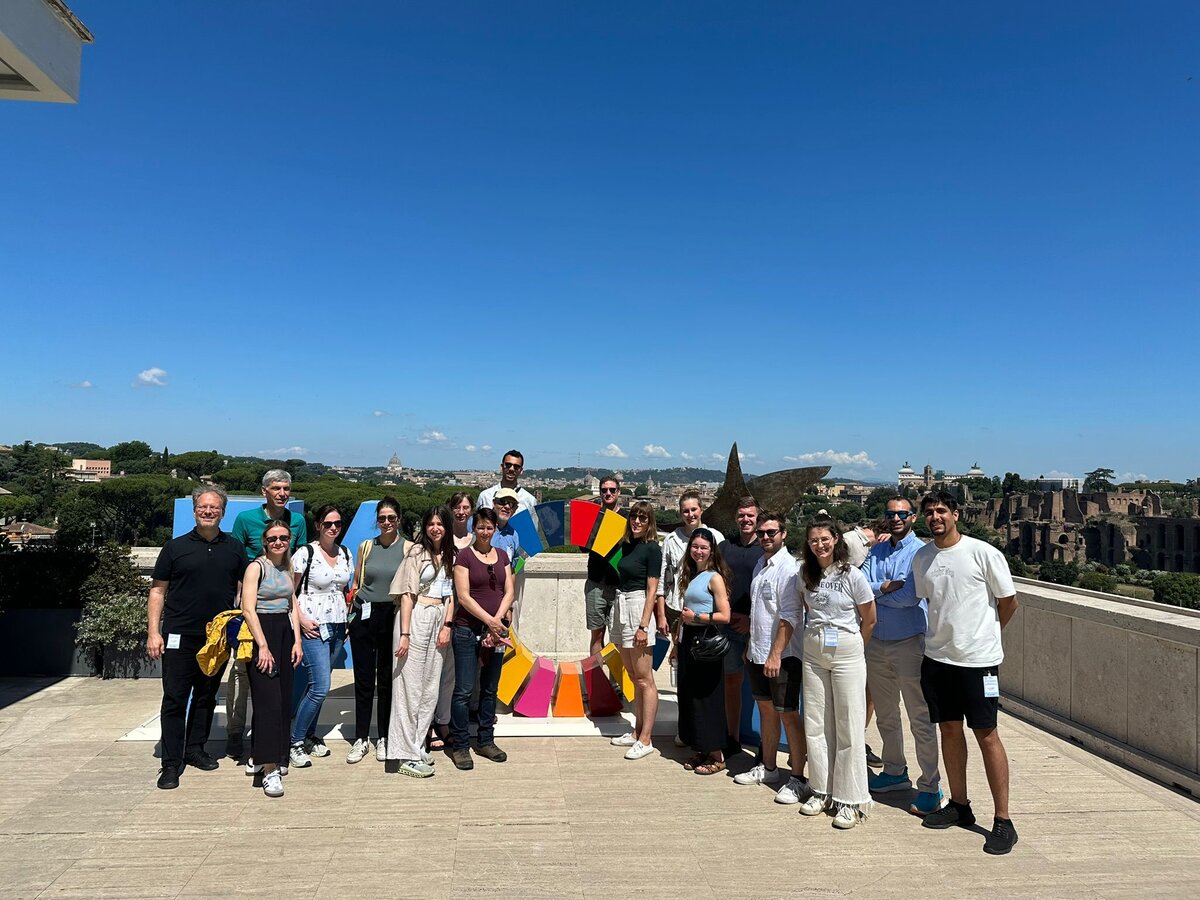Fascinating insights: study trip to Rome and Naples
- 21.10.2024
- International

Students of the Energy & Sustainability Management degree program together with Director of Studies Christian Huber at the headquarters of the Agriculture Organization of the United Nations.
In June 2024, students on the Master's program in Energy & Sustainability Management went on a study trip that took them first to Rome and then to Naples. During this trip, they had the opportunity to experience both historical and current topics first hand.
ROME: ON THE STREETS OF HISTORY AND MODERN AGRICULTURAL POLICY
The first part of the trip began in Rome, where the students were immersed in the ancient history of the city. On June 3, they visited the famous catacombs of St. Calixtus, an important site of early Christian history and the resting place of many martyrs and popes. These catacombs, located on the historic Via Appia Antica, are an important part of the Parco Regionale Appia Antica and gave the students a fascinating insight into the Roman past.
Afterwards, they explored the park, which is valued for its cooling poles – natural retreats in the city that offer refreshing relaxation even in the hot summer months. This visit highlighted to the students the importance of urban green spaces for the urban climate and quality of life.
One of the highlights of the trip to Rome was the visit to the headquarters of the Food and Agriculture Organization of the United Nations (FAO). The FAO is one of the leading international organizations in the fight against hunger and poverty. During a tour of the headquarters, the students gained valuable insights into the tasks of the FAO and its role in implementing the Sustainable Development Goals (SDGs). In a final discussion session, they were able to ask questions and debate global nutrition issues and current challenges.
NAPLES: VOLCANIC GEOTHERMAL ENERGY AND ANCIENT CIVILIZATIONS
On June 5, the group continued their trip to Naples. The program included a hike up Mount Vesuvius, one of Europe's most famous active volcanoes. During the excursion, the students discussed the possibilities that geothermal energy could offer the region. They drew parallels with Iceland, which serves as a model for the use of volcanic power for energy production. The consideration of whether a similar usage of Vesuvius would be feasible offered exciting insights into the potential of renewable energies in volcanic areas.
Another highlight of the stay in Naples was the visit to the ancient city of Pompeii, which was destroyed by the eruption of Vesuvius in 79 AD. During a tour of the ruins, the group reflected the impact of natural disasters on civilizations and which lessons can be learned for the present.
CONCLUSION: THEORY MEETS PRACTICE
The study trip offered the students a unique opportunity to apply their theoretical knowledge in practice. Whether at historical sites, discussing global challenges or exploring new technologies – the trip was not only educational, but also an unforgettable experience for all participants. Spending their free time together gave the young adults the opportunity to reflect on their experiences in a relaxed atmosphere and to grow closer as a group. These unforgettable days not only enriched their knowledge, but also strengthened the community and brought the trip to a successful ending.
